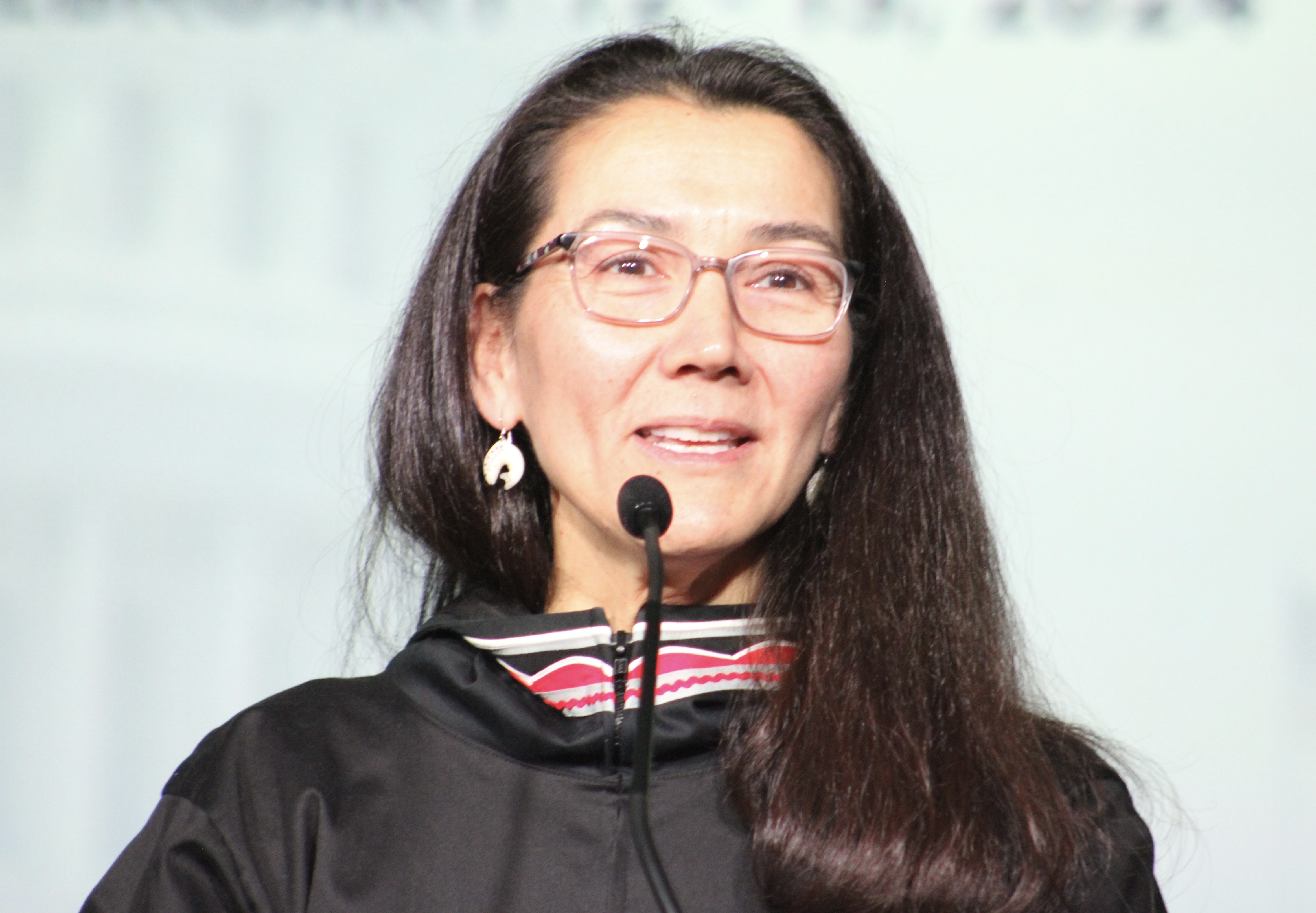Native Vote 2024. The single congressional seat in Alaska is yet to be called the November 5 election. At stake is the seat now held by Democrat Rep. Mary Peltola (Yup’ik), the first and only Alaska Native to serve in Congress.

The latest numbers show Peltola is trailing her Republican challenger Nick Begich III by 9,175 votes, according to the New York Times on Saturday morning.
Peltola sent an email out on Wednesday that read: "Across Alaska, thousands of in-person votes remain to be counted, and they’re coming from areas with large Alaska Native populations (where I often perform best)."
The current vote tally is just first-choice ballots. If no candidate gets more than 50 percent of the vote, ranked choice tabulation will determine the winner on Nov. 20.
Peltola was born in Alaska and raised on the Kuskokwim River in Kwethluk, Tuntutuliak, Platinum, and Bethel. Before representing Alaska, Peltola served on the Orutsararmiut Native Council Tribal Court and the Bethel City Council, and on the boards of the Nature Conservancy, the Alaska Humanities Forum, the Alaska Children’s Trust, and the Russian Orthodox Sacred Sites in Alaska.
Peltola upset Republican Sarah Palin in the August 2022 special election to become the first Alaska Native, first woman, and first Democrat since 1972 to represent Alaska in Congress.
In Congress, Peltola built budget consensus for rural Alaska, opened an Office of Food Security, gained $46 million for Alaska’s border, and increased renewable energy in the state.
Help us defend tribal sovereignty.
At Native News Online, our mission is rooted in telling the stories that strengthen sovereignty and uplift Indigenous voices — not just at year’s end, but every single day.
Because of your generosity last year, we were able to keep our reporters on the ground in tribal communities, at national gatherings and in the halls of Congress — covering the issues that matter most to Indian Country: sovereignty, culture, education, health and economic opportunity.
That support sustained us through a tough year in 2025. Now, as we look to the year ahead, we need your help right now to ensure warrior journalism remains strong — reporting that defends tribal sovereignty, amplifies Native truth, and holds power accountable.
 The stakes couldn't be higher. Your support keeps Native voices heard, Native stories told and Native sovereignty defended.
The stakes couldn't be higher. Your support keeps Native voices heard, Native stories told and Native sovereignty defended.
Stand with Warrior Journalism today.
Levi Rickert (Potawatomi), Editor & Publisher
